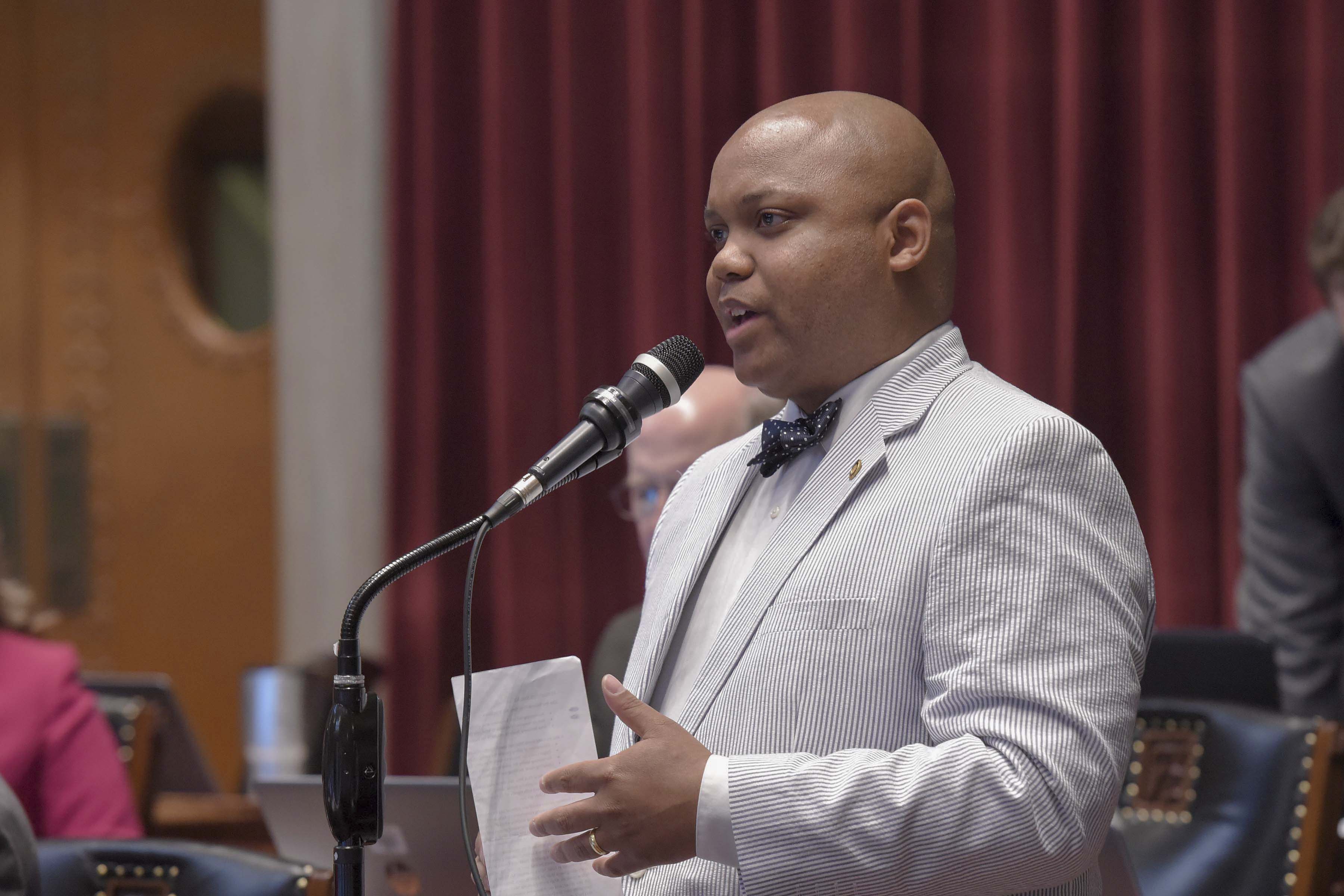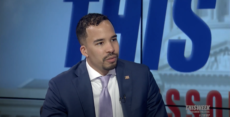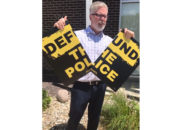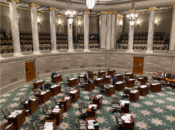While the nearly five hour hearing on policing in Missouri last week gave more than a dozen individuals the opportunity to share concerns, Rep. Shamed Dogan said there was one group of people he wanted to hear from but didn’t: law enforcement.
The hearing last week in Clayton is one of two planned with a focus on civil asset forfetirue and racial profiling, particularly in the wake of the annual report from the Missouri attorney general on vehicle stops. The 2018 Vehicle Stops Report, released earlier this year, showed the disparity level between black and white motorists who are pulled over in the state has increased to the highest level yet.
“I think one of the questions that we’re looking at resolving in a way — or at least finding some answers to — are which departments need to be the focus, not just in terms of the Vehicle Stops Report numbers, but people’s perceptions of which is the most problematic,” Dogan, the Republican chair of the House Special Committee on Criminal Justice, told The Missouri Times after the hearing.
Ahead of the next planned hearing — scheduled for August 1 in Kansas City —Dogan said he plans to “double down” on his efforts to encourage those “from the law enforcement establishment side” to attend and speak at the event. He said it was “concerning” that only Sgt. Heather Taylor from the Ethical Society of Police (E.S.O.P.) gave testimony at the earlier hearing.
“That was one of the hallmarks of why we decided to hold these hearings; we want to hear ideas from law enforcement about how they can reform themselves and be part of the solution instead of just blocking solutions, and we didn’t get that at all,” Dogan said. “We can’t come up with legislative reforms unless they, one, admit there’s a problem and need for some reforms, and two, unless they give us some guidance.”

“The idea that law enforcement would be uncomfortable providing public testimony about anything involving them when we had people who were uncomfortable driving from their neighborhood to Clayton to give testimony on racial profiling because they were afraid they might be unfairly stopped on the way there,” he continued. “The reality of fear is much more palatable with regular citizens than law enforcement. Of course they fear violence against them or being bashed on social media, but by and large, they aren’t facing the same dangers day-by-day that citizens face.”
Rep. Steve Roberts spent the majority of the hearing furiously scribbling down notes as more than a dozen people gave testimony about their experiences with law enforcement. And he already has a bevy of legislative ideas for next session.
“I thought it went great, and it was a really unique opportunity to hear from not just our constituents but from people from all over the region about their experiences,” Roberts, the committee’s ranking minority member, told The Missouri Times. “The suggestions they offered [are] enabling us to have an idea of what type of legislation to have pre-filed and get ahead of our next legislative session.”
In particular, Roberts wants to look at changing searches — either prohibiting most of them altogether or requiring officers get informed written consent first. The idea stemmed from one witness who said officers searched his car, even though he didn’t consent, leaving him sitting on the side of the road for nearly an hour. Officers did not find anything nefarious in the vehicle, he said.
“A lot of this stuff seemed like it could have been testimony given in 1960,” Dogan said.
“At the heart of it, it’s respect. People want to feel they’re respected by law enforcement and treated equally by law enforcement,” he continued. “If people are being disrespected during their stops and [in] interactions with police instead of feeling that police are there to serve them and doing that in a respectful way, then there’s going to be a problem. The police need the communities to believe in them, just as much as the people need to believe in police.”
So far, there’s just one more hearing scheduled, but Dogan hasn’t closed the door on the possibility for more in the interim.

Kaitlyn Schallhorn was the editor in chief of The Missouri Times from 2020-2022. She joined the newspaper in early 2019 after working as a reporter for Fox News in New York City.
Throughout her career, Kaitlyn has covered political campaigns across the U.S., including the 2016 presidential election, and humanitarian aid efforts in Africa and the Middle East.
She is a native of Missouri who studied journalism at Winthrop University in South Carolina. She is also an alumna of the National Journalism Center in Washington, D.C.
Contact Kaitlyn at kaitlyn@themissouritimes.com.















